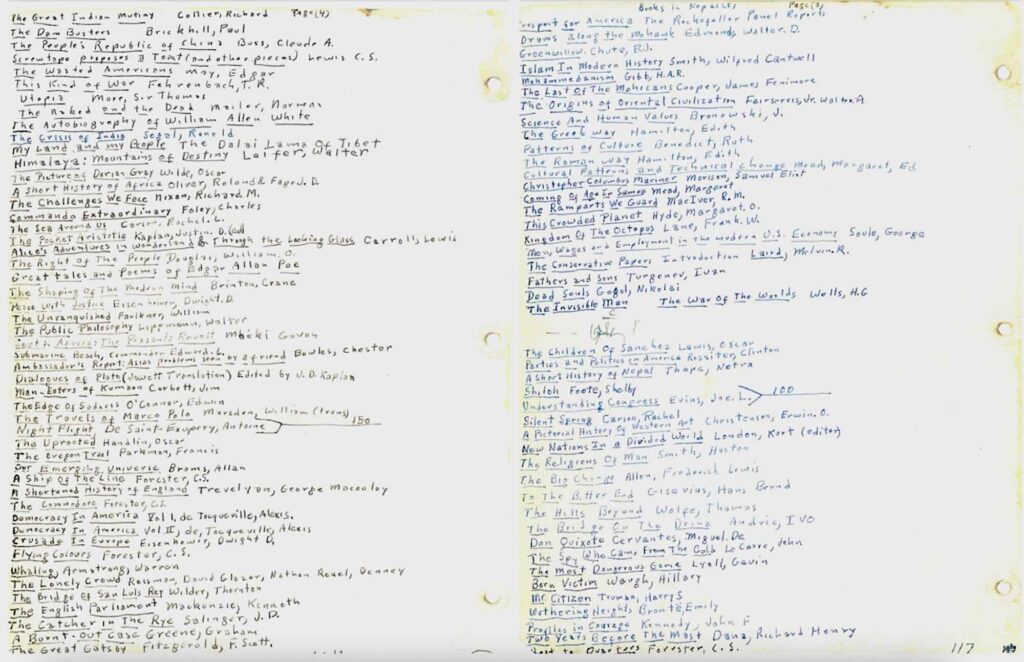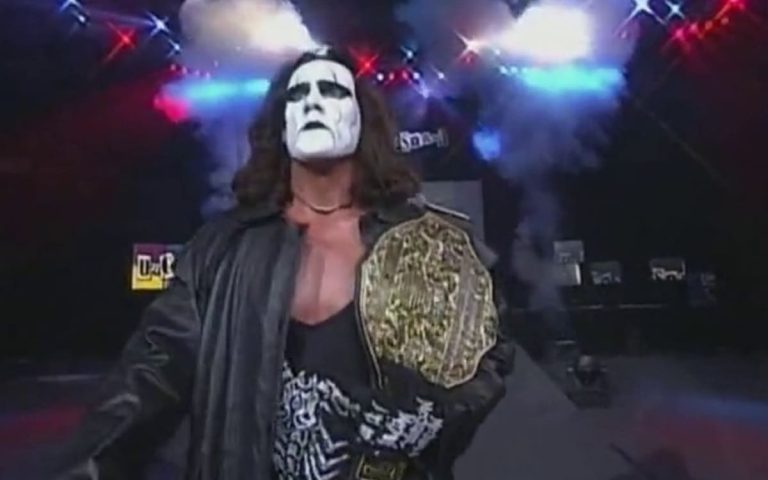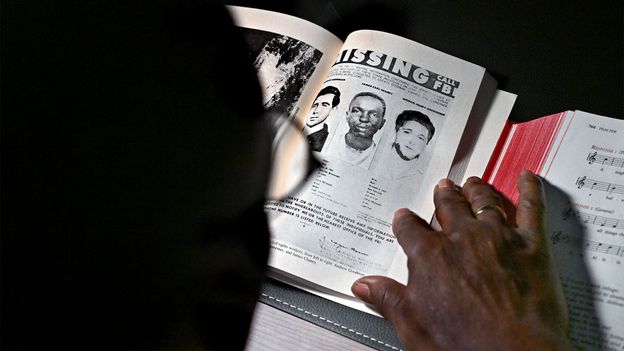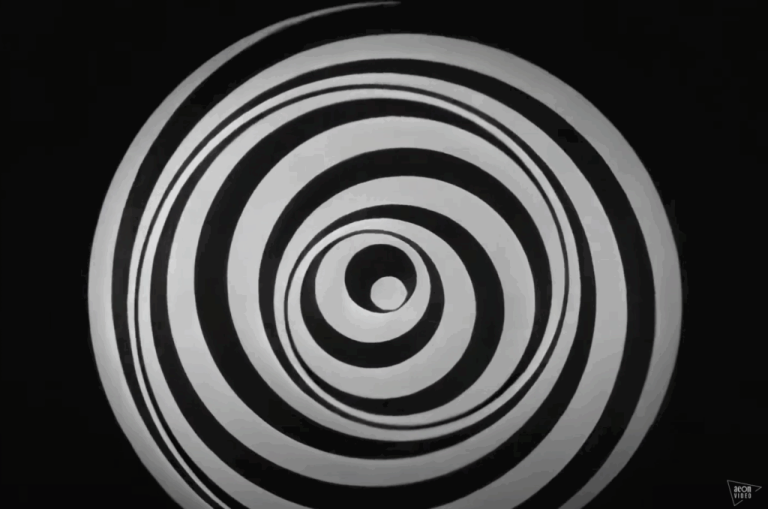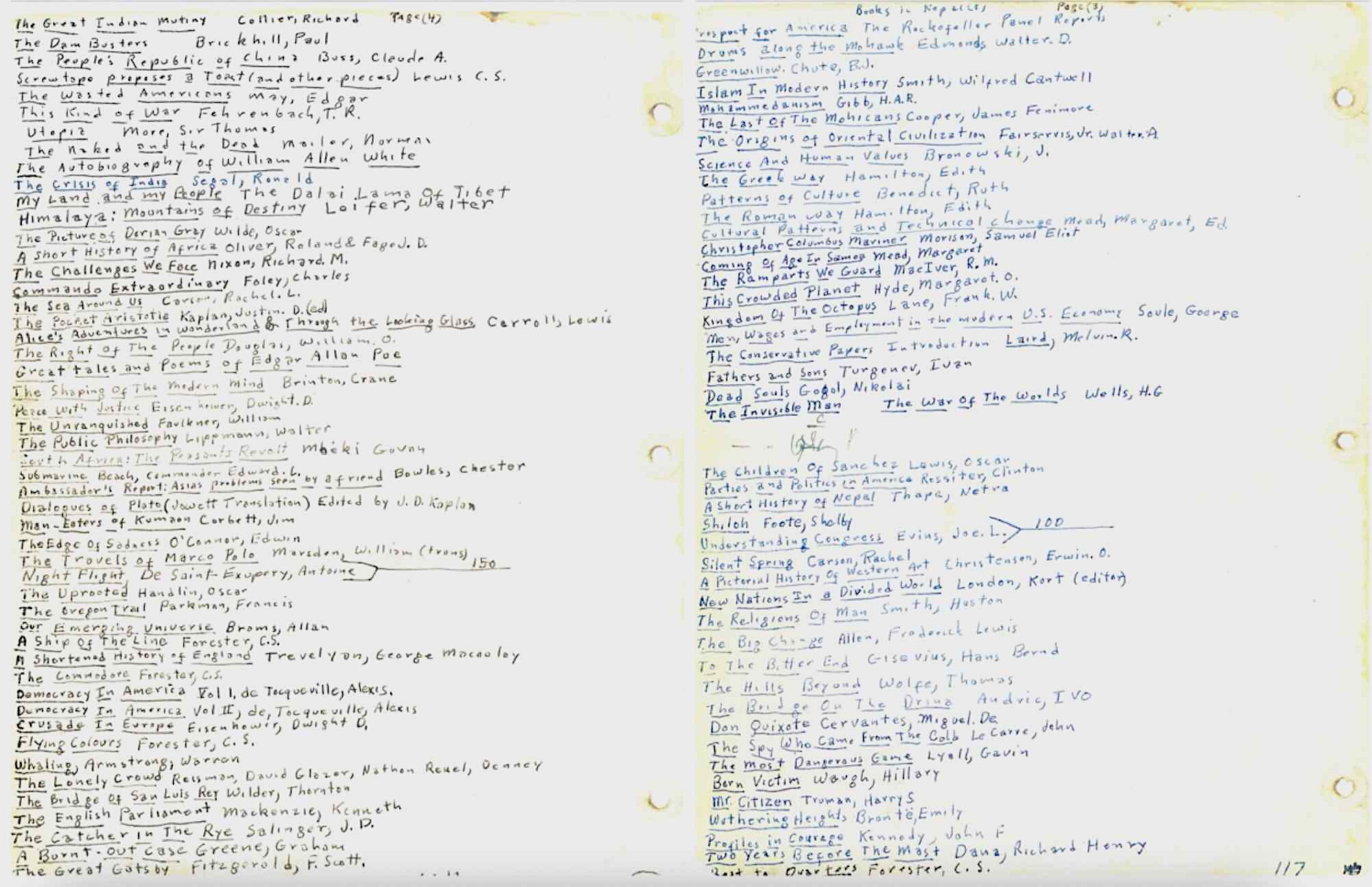

Dan Pelzer died earlier this year at the age of 92, leaving behind a handwritten list of all the books he’d read since 1962. His family had it digitized, put it online, and now it’s gone viral, somewhat to the surprise of those of us who’d never heard of him before. But that, it seems, is how the unprepossessing Pelzer himself would have wanted it, according to the impression given by his grown children when interviewed about the popularity of their father’s more than 100-page-long reading list. He began keeping it when he was stationed in Nepal as a Peace Corps volunteer, and kept it up until the end of his reading days in 2023, long after he retired from his job as a social worker at an Ohio juvenile correctional facility.
Examined together, whether in the form of a complete scan or a searchable PDF, the 3,599 books, most of them checked out from the library, that Pelzer recorded having read constitute a personal cultural history of the past six decades. Described as a devout Catholic, he certainly seems to have been consistent in his pursuit of an interest in not just the history of Christianity in particular, but the history of western civilization in general.
It comes as no surprise to see him dig into Will and Ariel Durant’s The Story of Civilization series in the early nineteen-eighties, slightly startling though it is that he read its eleven volumes in an apparently random order. This habit turns out to be characteristic: though reputed to finish every book he started, he only got around to six volumes of Anthony Powell’s A Dance to the Music of Time, starting with the eleventh and ending with the tenth.
Interspersed with the books of The Story of Civilization are the likes of Philip Caputo’s A Rumor of War, John Irving’s The World According to Garp, and three novels by Ken Follett. Though abidingly concerned with the story of mankind, Pelzer appears also to have had a weakness for genre thrillers (he’s remembered as a big John Grisham fan) and topical books-of-the-moment. But whether reading at high‑, low‑, or middlebrow level, he seems to have been willing to give all major religions and political philosophies, as well as some minor ones, a fair hearing — or rather, a fair reading. This makes for striking juxtapositions in his list: Ayn Rand followed by L. Ron Hubbard, Ta-Nehisi Coates by Jonathan Haidt. In that respect, he was, perhaps, the ideal of the engaged, “democratic” common reader one imagines populating America while somehow never encountering. If his list raises the question of why he didn’t go into a more intellectually ambitious line of work, it also, in a way, answers it: what time would that have left him to read?
Related content:
Joseph Brodsky’s List of 83 Books You Should Read to Have an Intelligent Conversation
David Foster Wallace’s Surprising List of His 10 Favorite Books, from C. S. Lewis to Tom Clancy
100 Books to Read in a Lifetime
Based in Seoul, Colin Marshall writes and broadcasts on cities, language, and culture. His projects include the Substack newsletter Books on Cities and the book The Stateless City: a Walk through 21st-Century Los Angeles. Follow him on the social network formerly known as Twitter at @colinmarshall.
